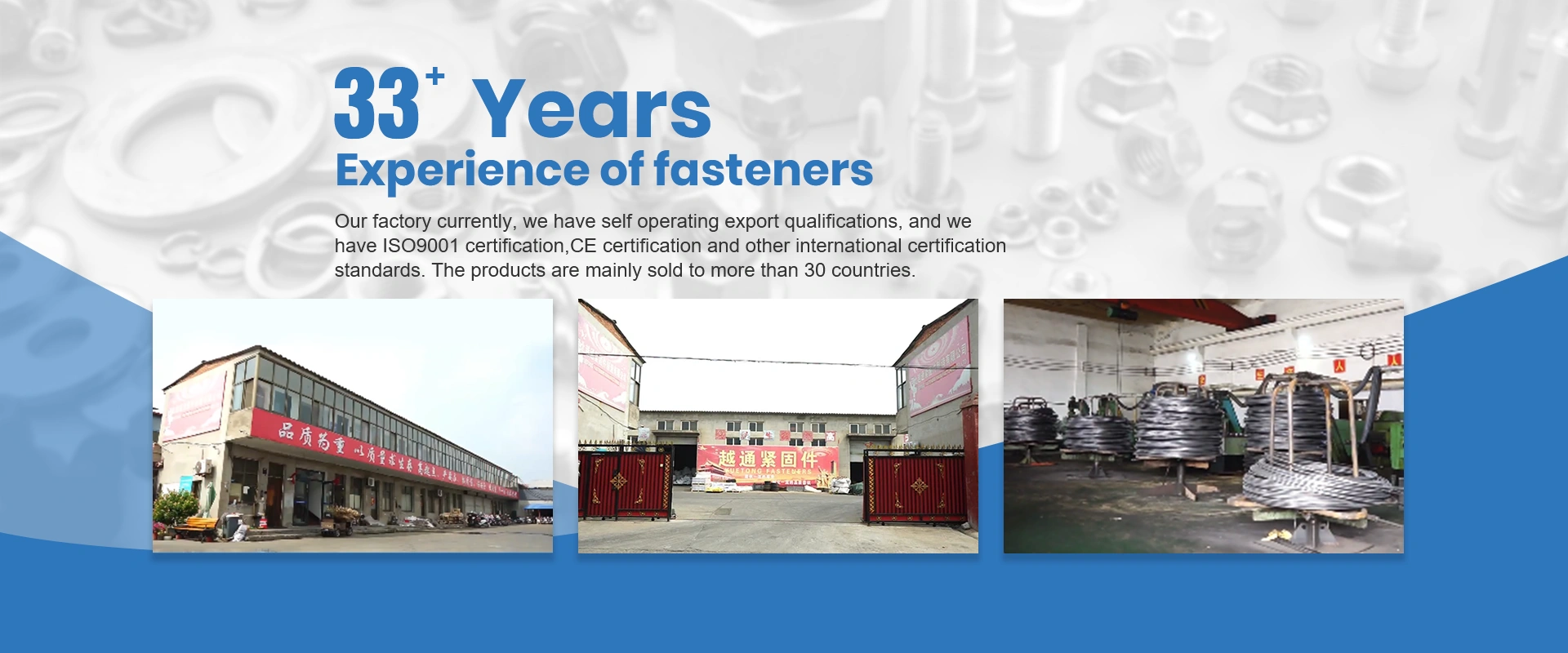Eyl . 12, 2024 20:05 Back to list
mechanical bolt types
Understanding Different Types of Mechanical Bolts
Mechanical bolts play a critical role in a wide range of applications across various industries, providing secure fastening solutions for structures, machinery, and equipment. These fastening devices come in numerous types, each designed for specific purposes, materials, and loads. Understanding the different types of mechanical bolts can help engineers and designers choose the right bolts for their applications, ensuring safety and performance.
1. Hex Bolt
One of the most common types of mechanical bolts is the hex bolt. Known for its hexagonal head, this bolt is typically used with a nut and is characterized by its high-strength capabilities. Hex bolts are made from several materials, including steel, stainless steel, and alloy steel, available in various grades to accommodate different strength requirements. Due to their versatility, hex bolts are widely used in construction and machinery assembly.
2. Carriage Bolt
Carriage bolts are distinct for their rounded head and square neck, which prevents rotation during tightening. These bolts are ideal for fastening wood to wood or metal to wood, commonly used in outdoor furniture assembly, decks, and fences. Their design helps distribute the load evenly, making them suitable for applications where aesthetic appeal is also important.
3. Lag Bolt
Lag bolts, or lag screws, are heavy-duty fasteners with a hexagonal head and coarse threads. These bolts are used primarily in wood applications, such as securing heavy structures like beams or large wooden furniture. They require a pre-drilled hole for installation, ensuring a strong and stable connection.
4. Shoulder Bolt
mechanical bolt types

Shoulder bolts, or stripper bolts, have a cylindrical shoulder that provides a precise pivot point for rotation. This design makes them useful in applications like machinery or automotive components, where parts must move relative to one another. Shoulder bolts come in various diameters and lengths, allowing for customized designs based on specific needs.
5. Socket Head Cap Screw
Socket head cap screws feature a cylindrical head with an internal hex drive, enabling them to be tightened using an Allen wrench. They are commonly used in applications requiring high precision and strength, particularly in the aerospace, automotive, and machinery industries. Their design allows for effective torque application and reduces the risk of stripping the head during installation.
6. Eye Bolt
Eye bolts have a looped head and are designed for lifting and rigging purposes. They are commonly used to create anchors for cables, chains, and ropes in industrial and construction settings. Selection of the right eye bolt is crucial, as the load capacity will vary based on material, size, and shape.
7. Set Screw
Set screws are a type of bolt that is fully threaded and designed to anchor an object within a hole. They are often used to secure pulleys, gears, or other components onto shafts and typically do not have a traditional head, allowing them to remain flush with the surface.
Conclusion
In conclusion, the choice of mechanical bolts is vital for ensuring the structural integrity and safety of a project. Each type of bolt has its specific applications and advantages, and understanding these differences allows professionals to make informed decisions. Whether it's a hex bolt providing high strength or a carriage bolt offering aesthetic appeal, selecting the right mechanical bolt can significantly impact the functionality and durability of the assembly.
-
The Ubiquitous Reach of DIN934 in Application Realms
NewsMay.16,2025
-
Exploring Different Bolt Types
NewsMay.16,2025
-
Cracking the Code of Sleeve Anchor Mastery
NewsMay.16,2025
-
Clamp Design Principles,Types and Innovations
NewsMay.16,2025
-
Artistry Inspired by the Humble Anchor Bolt
NewsMay.16,2025
-
A Deep Dive into Screw Types
NewsMay.16,2025


